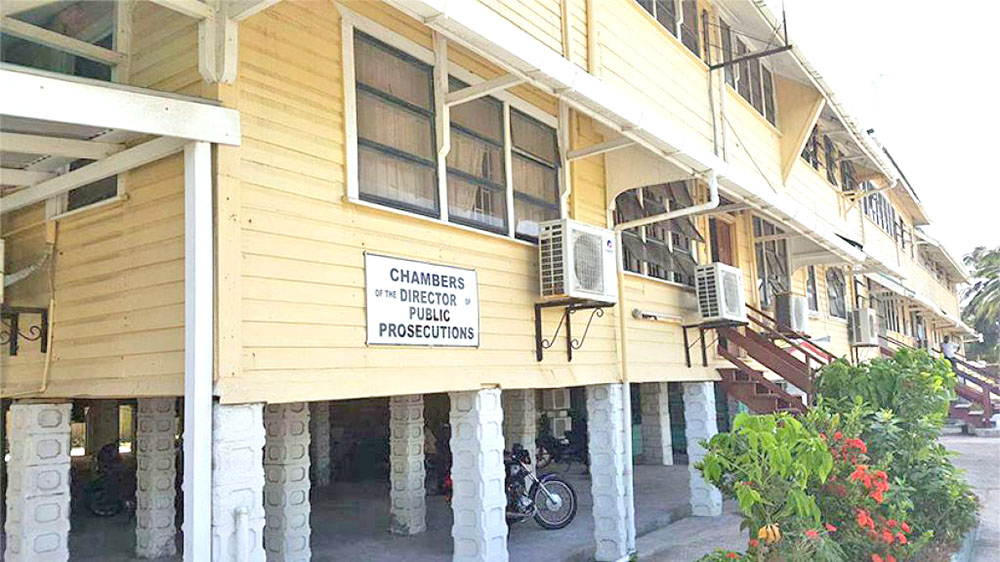Home News More Prosecutors, case management software for justice system
…as Govt addresses backlog, delays in Budget 2021
The human resource capacity and infrastructure at the Chambers of the Director of Public Prosecutions (DPP) will be significantly boosted under the $4.6 billion allocated in the 2021 budget for justice sector reform and strengthening.
Added to this, the Government intends to procure software to better manage cases to reduce the backlog and delays in the justice system.
This is in keeping with the Government’s commitment to ensure that all citizens have access to, and are protected by, the justice system. The budget makes provisions for the DPP’s Chambers to get expanded office space, to house more prosecutors who currently are unable to be hired at the moment. Once this is done, 10 legal staff will be hired to assist the Director of Public Prosecutions, Shalimar Ali-Hack, SC, in addressing a larger caseload over a shorter period.
The DPP is currently assisted by three Assistant Directors of Public Prosecution, three Senior State Counsels, and approximately 11 State Counsels. Also, $100 million is earmarked for the maintenance of infrastructure and buildings for the Supreme Court of Judicature and the DPP’s Chambers, which will together serve to ensure that improved physical facilities are made available.
According to the budget, the activities under the Support for Criminal Justice System programme will unfold, after a period of stagnation under the previous APNU/AFC Administration, with $325 million budgeted for 2021 for interventions, including strengthening of probation services and legal aid.
Under the programme, the Government has initiated a programme with the University of Guyana that will see law degree holders who are unable to attend the Hugh Wooding Law School being trained to prosecute alongside public and Police prosecutors. They will be deployed to courthouses throughout Guyana, augmenting the current complement of prosecutors, thereby reducing the time taken to administer related legal services.
Significant problem
In January 2021, Attorney General Anil Nandlall, SC, said Government intends to confront the large delays and backlogs across the judicial system, especially at the Court of Appeal, where he noted that the situation is a significant problem.
According to him, the backlog of cases and delays in access to justice have characterised Guyana’s judiciary for close to two decades. He noted that the delay has resulted in massive miscarriages of justice. Although the backlog was cleared in the civil division of the High Courts, there remains stagnation in the Criminal Assizes, the Appeal Court, and the Magistrates’ Courts, Nandlall added.
He pointed out that the previous backlog “virtually brought the wheels of justice in this country to a standstill in civil cases, and it caused persons in the criminal justice system to spend years and years in prison, incarcerated sometimes for offences they were later found not guilty of.”
Taking this into consideration, in Budget 2021, the Government announced that it will procure software to better manage cases.
The previous PPP/C Government had commenced addressing the issue of backlog cases in the High Courts; however, these gains were not sustained by the APNU/AFC Government, resulting in serious implications for both the justice system as well as the security sector.
Last week, the US Embassy in Georgetown announced that it was partnering with the Judiciary of Guyana to develop an automated court case management system. The United States expects to invest more than US$400,000 in the system, making it the largest new investment in a judicial sector assistance programme in Guyana in years. It is scheduled to be completed in 17 months.
The overall goal of this project is to improve the functioning of Guyana’s judicial system. The new case management system would help Guyana’s judiciary ensure criminal cases are handled expeditiously, reduce the case backlog, and increase public trust and confidence in the justice system. The court case management system would utilise a shared, open-source and cost-effective technology to increase the effectiveness and efficiency of judges and court staff by automating document production, improving processes, and facilitating data sharing.

